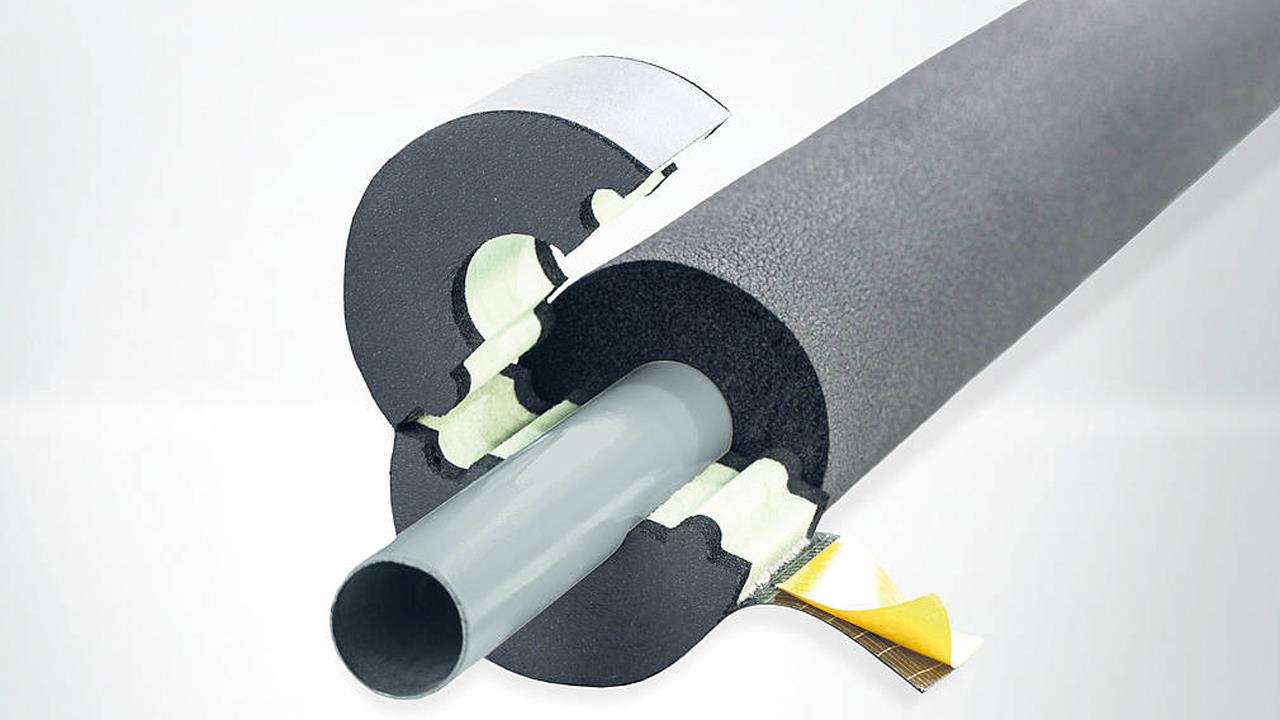

Anthony Barnett, Technical Marketing Manager at Armacell, looks at how advances in recycling can enable installers to offer their customers a more sustainable choice.
The UK is currently spearheading a move to more sustainable building materials, and the insulation industry is playing its part with environmentally-friendly alternatives now widely available. Some of these, such as our pipe supports, are made from 100% recycled PET from old plastic bottles.
In addition, the energy consumption during production of these recycled products is usually less than in the production of virgin materials, which has another positive impact on the environmental footprint.
PET from recycled plastic bottles is an environmentally-friendly material with a low thermal conductivity and a high compressive strength. The PET segments can be completely recycled at the end of their service life, with all production scrap flowing back into new PET blocks. PET also has good environmental performance, requiring over 60% less energy for its production than PUR, releasing over 80% less CO2.
Just as importantly, these recycled insulation materials offer the same thermal and mechanical performance as using virgin material.
Recycled material can be used for a wide range of applications in the HVAC sector. For example, a common use is in the manufacture of pipe supports, which are able to help your customers avoid a potential trouble spot in domestic, refrigeration, and air-conditioning applications.
In these instances it may be necessary to support pipework through ducting or above ceilings. However, direct fixing of cold services pipework to mounting brackets without insulation acts as a thermal bridge from surrounding warmer ambient air, with resultant energy loss and condensation. Likewise, hot water pipes lose a significant amount of heat if the brackets are not insulated.
The cost of uninsulated pipe support brackets can be significant. For example, when Armafix Ecolight supports, along with the equivalent insulation tube thickness, are installed, the annual energy efficiency savings of both hot and cold pipework is in the region of £2.50 to £5 per bracket. This quickly adds up when you consider that a pipework system in a large installation may incorporate hundreds of pipe supports.
Insulated pipe supports play an important role in maintaining system efficiency and integrity, and thermally isolating the pipe from its fixing is the best way of ensuring optimum performance.
An integrated approach, where the insulation material and insulated pipe supports are from a single source, offers greater compatibility in terms of condensation control, fire behaviour, energy saving, and ease of installation. By doing this, installers can ensure the efficiency of the system while providing their customer with long term low maintenance.
A growing number of customers are seeking sustainable building materials and are more willing than ever to ask installers whether the products are made from recycled material. On the other side of the equation, legislators are driving the market with a range of environmental certification schemes already in place.
With climate change now on everyone’s agenda, recycled products provide building solutions that reduce carbon emissions and promote better climate resilience.
If you'd like to keep up-to-date with the latest developments in the heating and plumbing industry, why not subscribe to our weekly newsletters? Just click the button below and you can ensure all the latest industry news and new product information lands in your inbox every week.